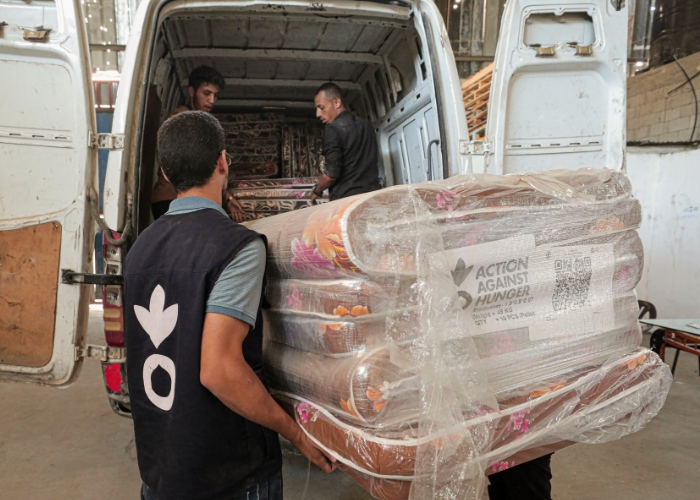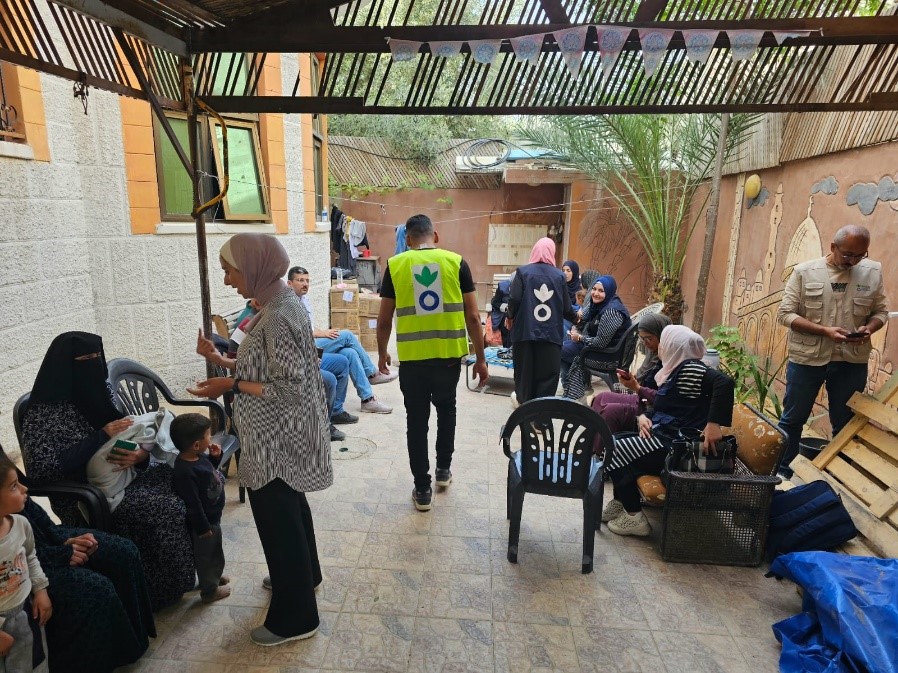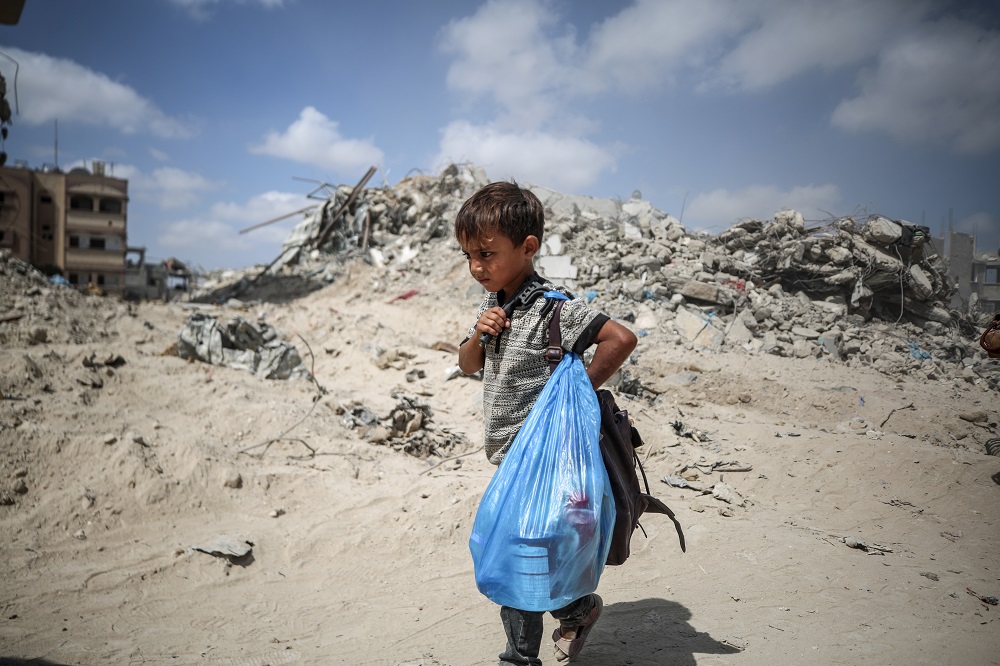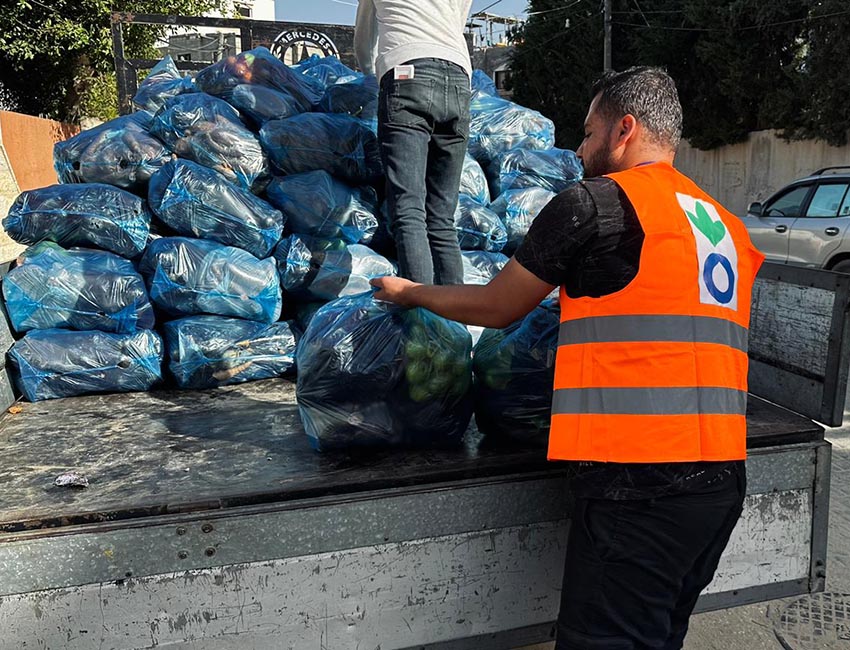Getting aid to the people who need it in Gaza is becoming increasingly difficult. Humanitarian access is being blocked, the security situation continues to deteriorate and the conditions the teams are working in are constantly changing.
In early May, our Logistics Manager – known here as JG – was deployed to Gaza to support our operations team with purchasing, supplying and distributing aid.
Here, they tell us about the challenges and constraints they’ve faced.
Basic conditions
“What struck me most when I arrived in Rafah was the density of tents on the sand. There isn’t an empty space left. These makeshift settlements, sometimes built from wood and tarpaulins, are the only accommodation for entire families who left their homes with nothing and now find themselves living in very basic conditions. Some people who no longer know where to live have even moved into destroyed buildings.
“Along the road between Rafah and Deir el Balah, the town where Action Against Hunger now has its main base, most of the buildings have been destroyed. Since the offensive in early May, the eastern part of Rafah has seen a high level of destruction, which is currently continuing. In other towns, such as Khan Younis, not a single building has been spared.”
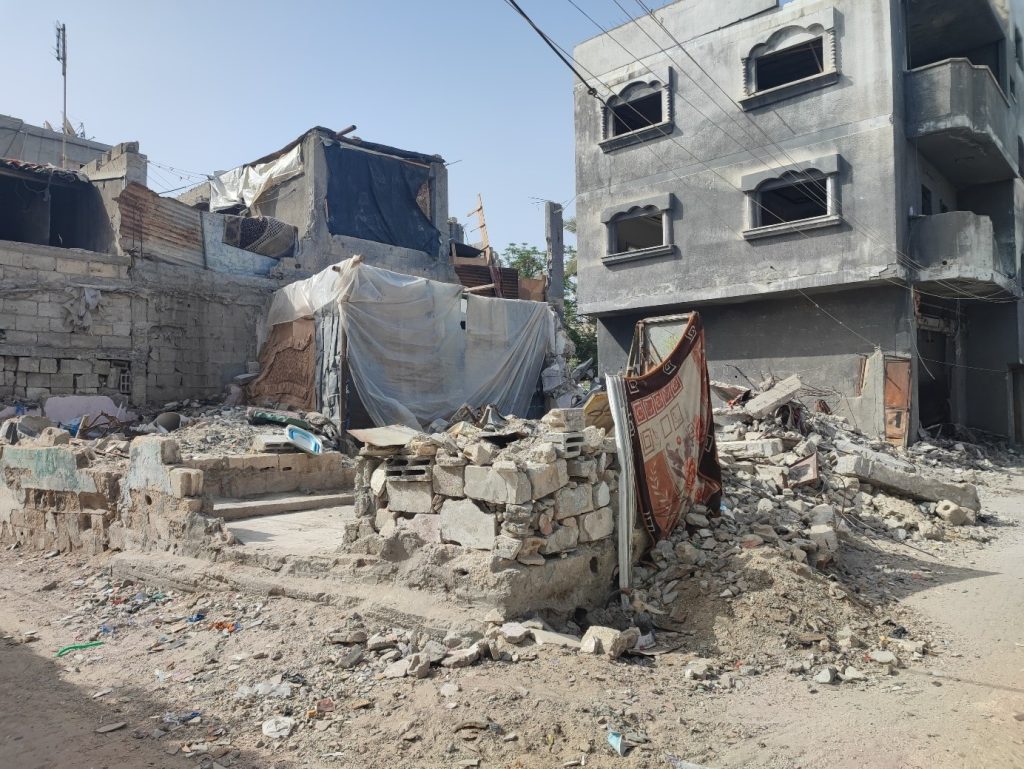
A destroyed residential building in Deir al Balah, a few metres from the new Action Against Hunger base.
Fuel shortages
“We have organised water deliveries by truck, an emergency mode of transport that is generally a short-term solution to save lives. Clean water is essential for hygiene and cooking and prevents the spread of waterborne diseases. Before the conflict, most water in Gaza was treated in desalination plants or pumped from wells — both of which require fuel to operate on a daily basis.
“But fuel, like other supplies in the Gaza Strip, is in desperately short supply. For instance, in the days following the offensive on 7 May, most organisations were preparing to suspend their activities due to lack of fuel. In addition to delivering safe drinking water by truck, we‘ve distributed hygiene kits, mattresses, blankets, pillows and carpets to the most vulnerable families.”
Soaring prices
“What little food there is in Rafah comes from farms or a few private commercial trucks. In recent weeks, however, market prices have soared. And the population is gravely short of cash.
“A cylinder of gas for cooking costs between $300 and $500 at the markets, and the quality of the food supply varies according to the arrival of private commercial trucks.
“Therefore, the population is largely dependent on humanitarian aid for their survival.”
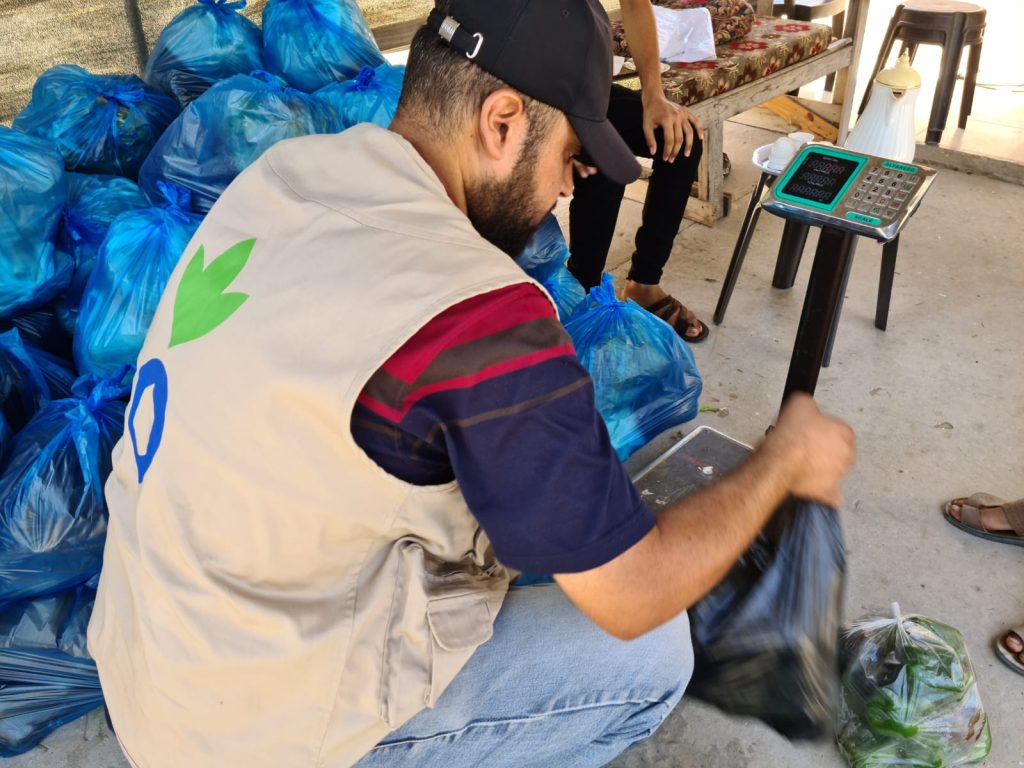
Our team preparing to distribute fresh food at Al Awda Hospital Nuseirat.
People are facing starvation
“Currently, over half a million children and mothers need nutritional assistance. And roughly half the population of the Gaza Strip — which amounts to over a million people — is facing starvation.
“To prevent malnutrition, rations of a food supplement called LNS (Lipid-Based Nutrient Supplements), have been distributed by our teams.
“We’ve also recently launched a health and nutrition programme, where our staff conduct community outreach to screen potential cases of malnutrition, assess needs, and offer training to prevent and respond to increasing levels of malnutrition and food insecurity.”
No place is safe
“My first few days here coincided with the start of the Israeli offensive on Rafah on May 7. From the base, I heard bombardments that were quite close to where we were. I had the impression that everything was going to collapse.
“In anticipation of the offensive, we had to urgently relocate our base from Rafah to Deir al Balah, a town 20km north. We converted a building into an emergency warehouse, enabling us to relocate our stocks and continue our activities, albeit at a smaller scale.
“We also set up a camp to house our entire team (around twenty people and their families), most of whom were staying at our premises. Within 24 hours of this relocation, we were up and running again.
“As a humanitarian logistician, in addition to managing the supply chain, which includes purchasing, and managing storage and transport to ensure that our aid reaches the people who need it most, I provide all the necessary support to our teams in Gaza.
“This includes finding and managing buildings for the teams to work in and ensuring the continuation of energy supplies and telecommunications. I’m also responsible for managing the fleet of vehicles and drivers, as well as safety and risk mitigation for the teams.
“However, despite scrupulously observing safety regulations, no place in Gaza can be described as safe.”
Aid must be made a priority
“It’s essential that priority be given to the distribution of aid by land and road, including all border crossings such as Rafah, Kerem Shalom, Erez and Karni. However, this is often limited by numerous constraints and the repeated closure of certain crossing points. For example, the Rafah crossing has been closed since May 7, leaving thousands of trucks stranded on the other side of the border in Egypt.
“The road is the only way for aid to reach a large part of the population. Airdrops and sea corridors are no substitute for efforts to guarantee safe, unhindered land access and previously open border crossings that have since been closed.
“In Gaza, our intervention is subject to an unprecedented level of challenges and constraints in terms of international supplies, fuel requirements, security management and humanitarian coordination.
“If these constraints persist or worsen, our ability to intervene, and that of other humanitarian organisations, will be even the more limited.”


